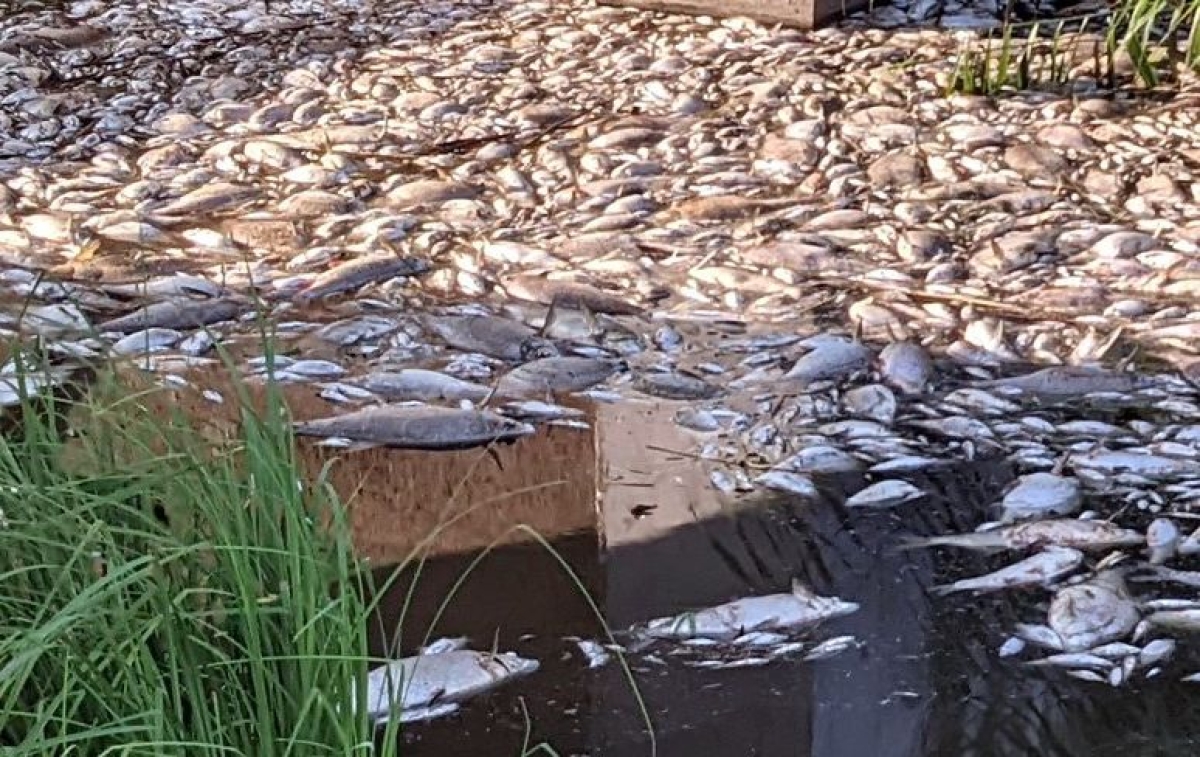Massives Fischsterben im Südirak

Bildquelle: Wikimedia Commons
Im Südirak werden tausende Tonnen an toten Fischen an Land gespült; ein weiteres Zeichen für die enormen Auswirkungen von Klimawandel und Umweltzerstörung im Land.
Die südirakischen Marschgebiete, die von Saddam Hussein in den 90er Jahren trocken gelegt wurden, hatten sich kurzfristig nach 2003 ein wenig erholt. Nun werden sie massiv von Klimawandel und Dürre getroffen. Der Irak wird von der UN als eines der am meisten vom Klimawandel auf der Welt betroffenen Länder eingestuft.
Große Teile der Marschen liegen nun erneut trocken; wohl aufgrund von Versalzung und Mangel an Frischwasser kommt es jetzt zu einem Massensterben von Fischen:
"Thousands of tonnes of dead fish have washed up on the riverbanks of Iraq’s southern province of Maysan, in what has been described as an ecological catastrophe.
The distressing scene is unfolding as a result of a significant increase in salinity and pollution, stemming from the region's shortage of freshwater supplies.
“The reason is the lack of water supplies from the Tigris River that feed small rivers and canals in some parts of the province,” environmental activist Ahmed Salih Nima told The National. (...)
The once vibrant waterways in Al Mijar Al Kabeer district and surrounding areas, which sustained abundant aquatic life and supported local livelihoods, now resemble a graveyard, with the lifeless bodies of fish washed across the river banks for miles.

Boats now struggle to navigate the once thriving rivers and canals, adding to the devastating impact on local communities who mostly depend on fishing and the businesses it supports.
The affected areas, about 70km south-west of Maysan provincial capital Amara, used to export 8-10 tonnes of fish a day to southern provinces, Mr Nima said.
“Today, that is completely gone,” he added. “Thousands of people who depend on fishing are now affected, from fishermen to other business such as ice sellers, boat repairmen, truck drivers, wholesale and retail merchants.”
Cattle breeders, who have relied on the river for generations, also find themselves at a loss.
“We are going through an unspeakable harsh situation,” Naim Hussein Joeiber told The National. “The fish are gone and our livestock are dying due to lack of water and high salinity.”